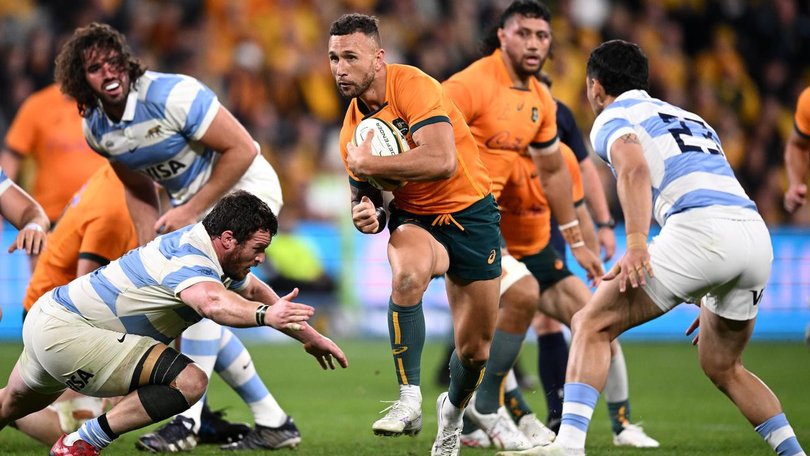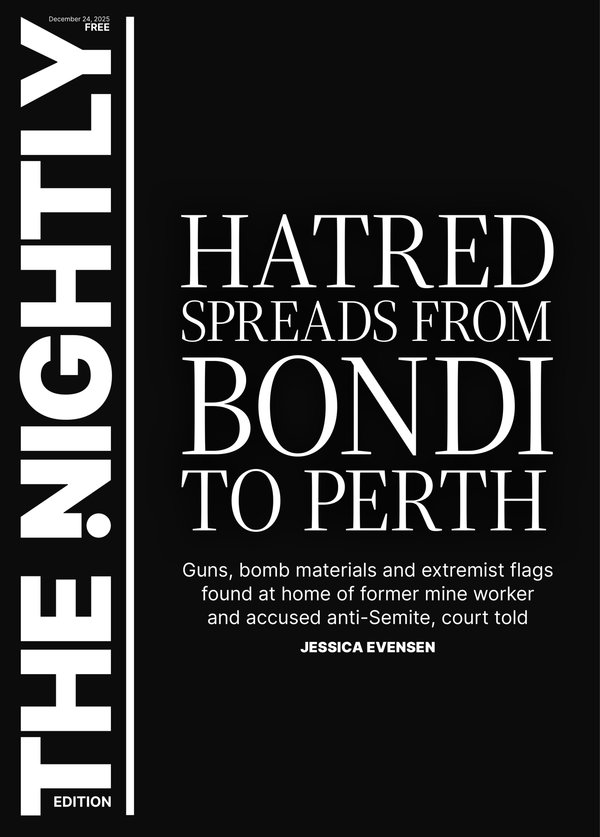Quade Cooper slams Rugby Australia, blames ‘decade of coaching chaos’ for Wallabies’ decline

Quade Cooper has launched a blistering attack on Rugby Australia, claiming a “decade of coaching chaos” is behind the Wallabies’ dramatic fall from grace.
Rugby World Cup finalists in 2015, the Wallabies will enter the looming showpiece series against the touring British and Irish Lions as the eighth-ranked team in the world.
An 80-Test stalwart who played under five different coaches in a 15-year Test career, Cooper has laid bare why the series shapes as a real-life David-versus-Goliath battle in a damning column for NewsCorp.
Sign up to The Nightly's newsletters.
Get the first look at the digital newspaper, curated daily stories and breaking headlines delivered to your inbox.
By continuing you agree to our Terms and Privacy Policy.Under the headline of ‘Wallabies’ identity crisis: a decade of coaching chaos’, Cooper pulled no punches when disturbingly detailing where he believes it has all gone wrong for Australian rugby since the glory days of holding the Bledisloe and World Cup trophies and winning the 2001 series against the Lions.
“The most frustrating narrative around the Wallabies over the past decade has been that we don’t produce quality play makers,” Cooper wrote.
“I’ve been in the No.10 jersey for the Wallabies. I’ve copped the pressure, the praise, the criticism. I know what it’s like to try and lead a team through the chaos of constant change, all while trying to make sense of what Australian rugby actually stands for.
“The core problem is that the coaches change every freaking two years.”
Pointing out that he played under Robbie Deans, Ewen McKenzie, Michael Cheika, Dave Rennie and Eddie Jones, Cooper said the “constant churn means you’re changing the program every two years, and so consistent development is impossible”.
“When a new coach sweeps in, the whole set-up changes, the structure of the camps, the structure of who’s coaching, the structure of how you’re playing,” he said.
“This isn’t just disruptive; it’s crippling.
“Australia has been unable to cultivate a distinct style of play because they’re trying to get the best coach that’s out there right now, rather than adhering to a foundational Australian identity.
“As a result, Australian play over the last 15 years has had no identity to it.
“I contrast this with global rugby powerhouses.
“The All Blacks: Every time a coach comes in, their system is the All Blacks system. Coaches often have prior involvement and simply keep moving it forward.
“The Springboks: South Africa is still South Africa, no matter who has coached their team. They’ve just been able to add layers to it, integrating better players into certain positions without tearing up the whole playbook.
“Their forward pack has not changed; they just add younger players to the mix that are more talented than the next.”
Cooper believes the “perpetual cycle of change in the Wallabies leads to the dreaded word heard so much in Australian rugby: ‘rebuild’.”
“Every new coach starts building from the ground up. It’s a self-perpetuating problem,” he wrote.
“My message is clear, at some point there has to be consistency. The Wallabies need to define their big rocks as an organisation, and their ‘DNA’.
“Only then can they establish principles of what you coach on that transcend individual coaching tenures, allowing true development and a consistent, winning identity.
“Without that, the frustrations for play makers and the team as a whole will continue to fester, leaving the Wallabies in a perpetual state of ‘rebuilding’ instead of genuine contention.”
